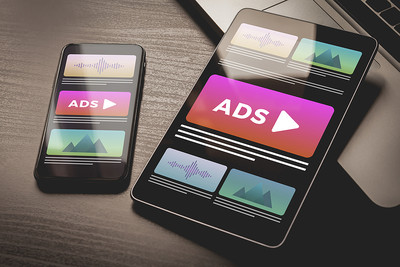 The ginormously popular video streaming site YouTube has announced a complete ban on non-universal ads placed on its homepage masthead slot.
The ginormously popular video streaming site YouTube has announced a complete ban on non-universal ads placed on its homepage masthead slot.
This is considered to be one of the most valuable advertisement positions anywhere online, however YouTube has decided that ads related to gambling, alcohol, politics and prescription drugs will no longer be allowed on the masthead, which typically sits at the top of the page above the user’s selected content.
There will also be a ban on adverts that feature ‘improper’ conduct, negative events and wild claims about success/financial rewards that are exaggerated or falsely claimed.
A spokesperson for Google, who owns and operates YouTube, said:
“We will regularly evaluate advertising requirements to balance the needs of advertisers and users.
“Last year we adjusted the Masthead Ads booking process. Today’s adjustment is based on the previous adjustment. We believe that the new changes will give users a better experience. The adjustment takes effect immediately.”
It’s perhaps a surprise that its taken YouTube this long to call time on ‘inappropriate’ content, however the question of whether gambling ads should be treated the same as those featuring nudity, swearing or violence remains to be seen.
The platform is not averse to accidental controversy, and was forced to issue a grovelling apology when Donald Trump was able to acquire exclusive rights to the masthead slot for three days during the U.S. presidential election of 2020 – in stark contrast to YouTube’s a-political stance. They were also accused of being late to the party in banning ads that propagated conspiracy theories.
YouTube users are already able to curate the type of adverts they see when logged in to their account, and so can disable content that includes gambling, alcohol and the other topics on the firm’s new banned list – this is the first time that they have introduced their own company-wide ban.
The masthead position has been reserved for ‘targeted content’ for the past year – that means, in theory at least, that the ads you see will be linked to your viewing history and browsing patterns on the platform.
The decision to strongarm what can and can’t be advertised on the platform treads a fine line, and in December 2020 the U.S. government even filed an anti-trust lawsuit against Google, claiming that the firm was developing an ‘illegal monopolisation’ of their search function.
Opting Out

It was back at the tailend of 2020 that YouTube enabled their users to manually dictate what content they would see on the site’s various ad bars.
That was bad news for casino operators, some of whom thrive on ‘guerrilla’ marketing rather than targeted adverts.
Users can login to their account and modify their settings so that gambling and alcohol-related content is removed from their feed – a move that YouTube claimed was based on user feedback.
There have been concerns about the number of gambling ads that have been appearing in recent years, and particularly on platforms where children and other vulnerable parties are the primary users. Online ad ‘impressions’ – the number of times an advert appears on screen – more than doubled during the first six months of the 2020 too.
Watchdogs have called for a complete ban on promotional material on all platforms during the European Championship football event, and the Gambling Act reforms are also expected to introduce more stringent rules on when and where casinos and betting sites can advertise.
